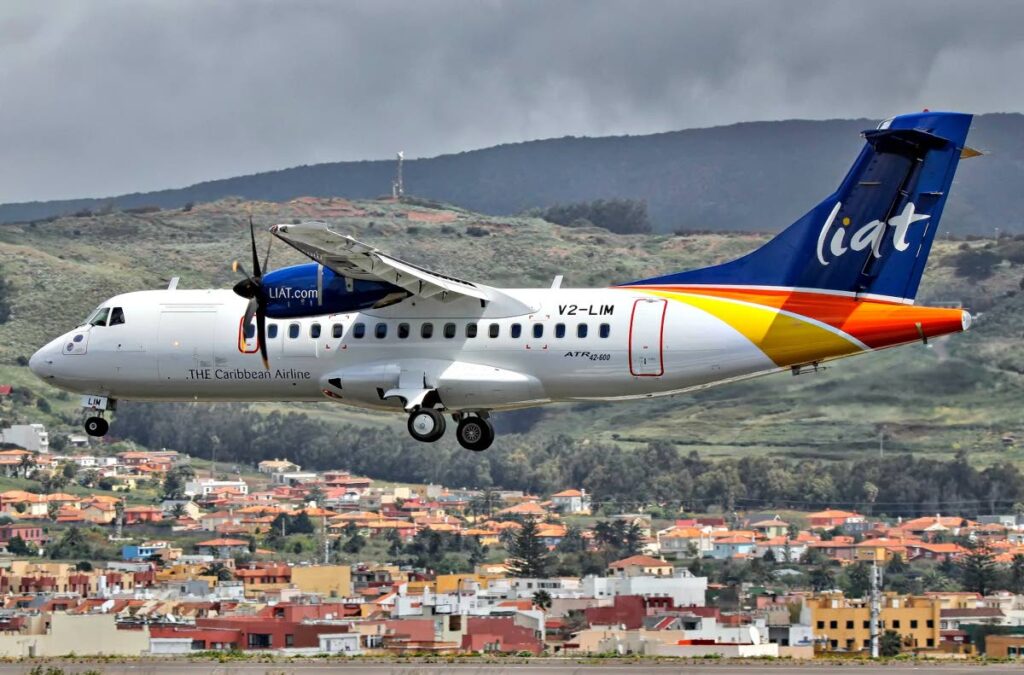Can LIAT 2020 develop take-off power

The airline industry is highly competitive, complex and underpinned by a very stringent regulatory framework based on international safety standards.
In addition, the industry resides in a rapidly changing technological environment that drives continuous automation in all areas of airline operations.
In order to sustain the highest levels of safety and efficiency in airline operations, a qualified and experienced human resource cadre is required to effectively manage key areas of airline activities such as marketing, reservations, finance, flight operations, maintenance and engineering , customer service, ground handling and strategic planning.
The fundamental starting point for a new airline begins with a sound strategic business plan based on a well-researched and comprehensive feasibility study.
A typical airline business plan includes the governance structure, capitalisation, proposed route network, fleet plan, human resource, a marketing plan that includes an analysis of the market conditions, competition, brand development and an implementation plan with timelines.
As the Gaston Browne’ administration of Antigua and Barbuda grapples to woo regional governments to participate in LIAT 2020, it is unclear whether the regional heads have seen a viable strategic business plan for LIAT 2020.
During the forty-fifth regular meeting of the Conference of Heads of Government of Caricom held in TT during the period July 3-5, LIAT 2020 was not on the meeting’s agenda.
During the meeting, informal discussions with regional heads did not evoke favourable responses.
Antigua and Barbuda’s Information Minister Melford Nicholas previously stated that the future of LIAT 2020 remains in limbo, as Caribbean governments remain apprehensive about setting up the new entity.
Nicholas also cited a significant degree of reticence within other Caribbean member states to embrace LIAT 2020.
Caribbean governments reticence to invest in LIAT 2020 is linked to their apprehensions about its proposed governance structure in which the Antigua and Barbuda Government and its citizens would own more than 51 per cent, giving them effective control of the airline.
Of great concern is that Allen Onyema, the CEO of Nigerian based Air Peace and a major potential investor in LIAT 2020, is under indictment in the US for bank fraud and money laundering.

His indictment is linked to aircraft purchases though a US company, Springfield Aviation Company LLC and which was owned by him.
Interestingly, all Caricom countries are members of the Caribbean Financial Action Task Force (CFATF) whose primary objective is to implement common countermeasures to address money laundering.
International financial institutions can blacklist countries for non-compliance with the terms of their CFATF membership.
Recently, it was announced that Onyema obtained Antiguan and Barbuda’s citizenship under the country’s Citizenship by Investment Program (CIP) which would clear the way for LIAT 2020 to qualify under the existing Caricom Multilateral Air Service Agreement (MASA) for the grant of rights to operate into other Caricom countries.
In the meantime, Caribbean Airlines Ltd (CAL) is aggressively expanding its route network in the eastern Caribbean and tangibly filling the void created by the demise of LIAT (1974) Ltd.
In the Senate last week, Finance Minister Colm Imbert announced that CAL would be acquiring three more wide-bodies aircraft, four more ATRs and three to four mid-range jets for interregional travel.
He further stated that CAL was expanding its route network to the destinations in the upper Caribbean, British Virgin Islands and the Central, South and North Americas.
TT has liberal bilateral air service agreements with Canada, US, Costa Rica, the UK and Brazil which will facilitate route rights for CAL’s expansions.
This expanded network gives CAL a prodigious competitive advantage over LIAT 2020.
CAL operates a fleet of modern aircraft with superb passenger comfort. CAL excels in customer care, on-time performance, convenient connections and most importantly, safety. It has a dynamic team of qualified, experienced and innovative airline executives led by a competent CEO.
Another important consideration is the recent decision by the Caricom heads to accelerate the free movement of people to work and live within the community.
This will provide employment opportunities at CAL for aviation professionals such as pilots, engineers, flight attendants and customer service staff from other Caricom states including the OECS.
In a similar vein, hundreds of Jamaican pilots, engineers, flight attendants and customer service staff were employed by CAL in 2011 when the governments of Jamaica and TT signed an agreement for CAL to operate certain north American routes on behalf of the Jamaican government due to the cessation of operations by Air Jamaica.
In a non-cash arrangement, based on the Air Jamaica’s brand estimated worth of US$28 million, the Jamaican government was given 16 per cent shareholding in CAL and one Jamaican director on CAL’s board.
During CAL loss making periods – such as during the covid19 pandemic – the Jamaican government, as a shareholder, did not subsidise CAL even though CAL employs a large number of Jamaican citizens. The TT taxpayers continue to faithfully provide cash bailouts to CAL.
CAL is now formidably poised to become the major regional airline with an international network as envisioned by late Prime Minister Patrick Manning, when BWIA was shut down in December 2006 and seamlessly replaced by CAL.
The recent debacle with Antigua Airways, “the Pride of the Caribbean”, speaks loudly about the Browne administration’s competencies in the airline business.
LIAT 2020 may never develop take-off power.
Therefore, the redemptory way forward is for the Browne administration to put aside pride, face reality and fully embrace CAL as the regional airline

Comments
"Can LIAT 2020 develop take-off power"